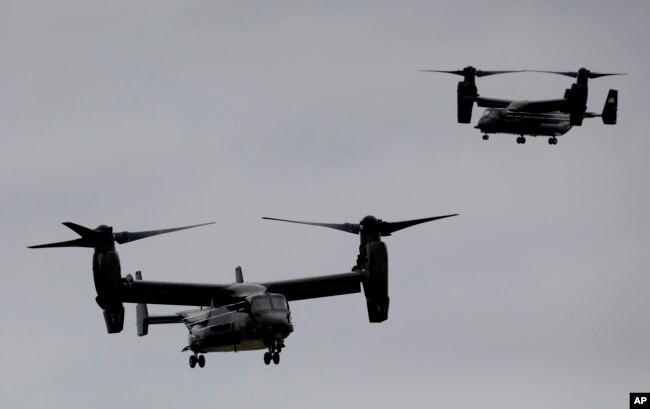
PENTAGON —
A U.S. military investigation has found that U.S. forces killed between four and 12 civilians during a January raid targeting al-Qaida’s branch in Yemen, according to U.S. Army General Joseph Votel, the commander who oversees U.S. military operations in the Middle East.
Votel, who heads U.S. Central Command, told the Senate Armed Services Committee on Thursday the civilian casualty determination was based on the “best information available.” The general took responsibility for the mission against al-Qaida in the Arabian Peninsula (AQAP).
“We lost a lot in this operation,” Votel said, referring to Ryan Owens, the U.S. Navy SEAL killed during the raid, along with the civilians killed and the V-22 Osprey aircraft that was destroyed. Some lawmakers have questioned the value of data captured by U.S. forces in the January raid, which was authorized by President Donald Trump.
Votel reaffirmed the Pentagon’s stance on the taken data, telling lawmakers that the military “did gain some valuable information that will be helpful” against AQAP.
The general added that he saw “no need for an additional investigation” into the operation. A separate probe is still ongoing to provide accountability for the loss of the V-22 Osprey, an aircraft worth about $70 million, during the raid.

U.S. Army General Joseph Votel says, March 9, 2017, the V-22 Osprey aircraft was destroyed during a January raid targeting al-Qaida’s branch in Yemen. the aircraft was worth about $70 million.
The U.S. military has carried out more than 40 airstrikes in Yemen in recent days targeting members of AQAP. Pentagon spokesman Navy Capt. Jeff Davis has said the latest round of airstrikes was meant to deny AQAP operatives “freedom of movement.”
Iran
Votel also told lawmakers on Thursday that the U.S. military and its allies were “dealing with a range of malign activities perpetrated by Iran and its proxies” in the Middle East. “It is my view that Iran poses the greatest long-term threat to stability for this part of the world,” Votel said.
The general said Iran seeks to be the “regional hegemon” and is using “destabilizing” behavior to achieve its goal. He voiced concern about Iran and Russia’s actions to prop up the regime of Syrian President Bashar al-Assad, as well as Iran’s maritime behavior.
Iranian vessels came within 550 meters of a U.S. Navy ship Saturday in the Strait of Hormuz, forcing the American ship and other vessels to change direction. “No other nation operates the way they do in the Arabian Gulf,” Votel said, referring to the body of water also known as the Persian Gulf.
“And they need to be held accountable for that, and they need to be exposed for those types of unprofessional, unsafe and abnormal activities.”
Source – VOA
